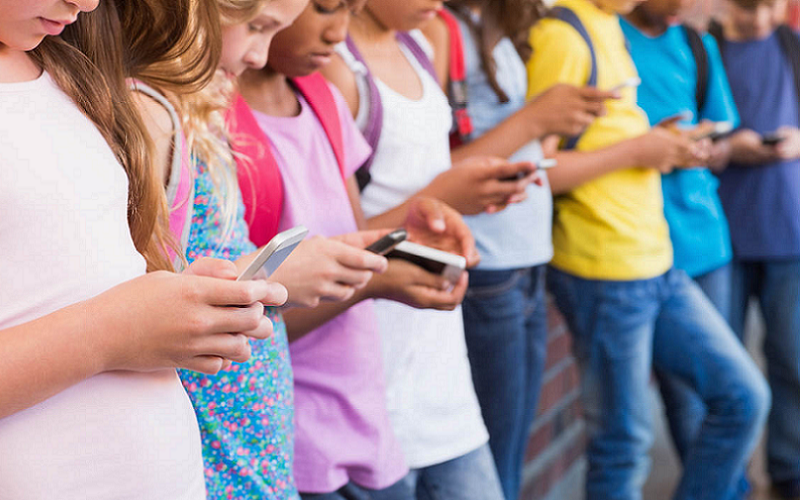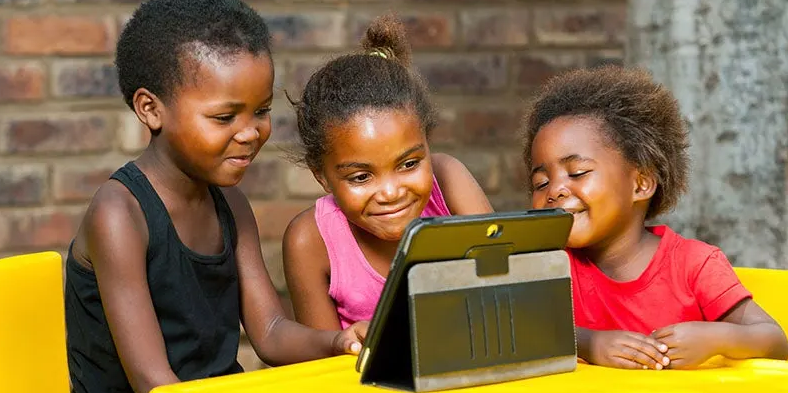
In today’s digital age, children are exposed to technology and the internet from a very young age. While technology has brought many benefits to our lives, it also poses several risks, such as cyberbullying, online predators, and the spread of misinformation. As parents and educators, it’s crucial to teach kids about digital citizenship and online safety to ensure they have the skills and knowledge to navigate the online world safely and responsibly.
Importance of Digital Citizenship and Online Safety for Kids
Digital citizenship and online safety are essential skills that children need to navigate the digital world. In today’s technology-driven society, children are exposed to various digital devices such as smartphones, tablets, and computers from an early age, and they are spending an increasing amount of time online. While technology provides countless benefits, such as increased connectivity and access to information, it also comes with risks that can pose a significant threat to children’s safety and well-being.
Here are some reasons why digital citizenship and online safety are critical for kids:
- Protection from online dangers: Children are at risk of encountering various online dangers, including cyberbullying, online predators, inappropriate content, and scams. By teaching children about online safety, parents and educators can help them recognize and avoid these risks, keeping them safe while they explore the online world.
- Development of responsible behavior: Digital citizenship teaches kids how to be responsible digital citizens by understanding the ethical, legal, and social implications of their online behavior. This includes respecting the privacy of others, understanding the importance of protecting their personal information, and being mindful of the consequences of their actions.
- Positive digital footprint: Encouraging children to be good digital citizens can help them develop a positive digital footprint, which is essential in today’s digital age. A positive digital footprint is an online reputation that reflects positive values, skills, and achievements. This can benefit children in the future, such as when applying for jobs or colleges.
- Improved communication skills: Digital citizenship also teaches children how to communicate and collaborate online effectively. This can help them develop critical skills, such as empathy, active listening, and effective communication, that they can use in their personal and professional lives.
- Responsible use of technology: Digital citizenship and online safety help children learn how to use technology responsibly. They can learn to balance their online and offline activities, use technology in a safe and healthy manner, and develop critical thinking skills to evaluate the information they find online.

Understanding Digital Citizenship
Digital citizenship is a concept that describes the responsible use of technology and the internet. It is a set of guidelines that help individuals, particularly children, navigate the digital world safely and responsibly. Children should understand the various aspects of digital citizenship, including their digital rights and responsibilities, digital etiquette, digital security, digital literacy, digital law, and digital health and well-being.
Digital rights and responsibilities involve respecting the rights of others, protecting personal information, and using technology in a safe and legal manner. Children should understand that digital etiquette requires appropriate use of technology in social settings, being respectful in online communication, avoiding cyberbullying, and following basic rules of online conduct.
Digital security is an essential aspect of digital citizenship. Children should understand the importance of digital security and how to protect their personal information online. This involves creating strong passwords, avoiding suspicious links and downloads, and keeping their devices and software up to date.
Digital literacy is another important aspect of digital citizenship. Children should develop digital literacy skills, such as the ability to evaluate online information, recognize biases, and filter out misinformation. Digital literacy is essential for effective communication and critical thinking in the digital age.
Digital law involves understanding the laws that govern digital behavior, such as copyright laws, and the consequences of illegal online activities. Children should understand the legal consequences of cyberbullying, hacking, and sharing copyrighted material.
Children should learn how to use technology in a way that promotes their health and well-being. This includes balancing their online and offline activities, avoiding excessive screen time, and promoting healthy habits while using technology.

Online Safety Tips for Kids
Online safety is a critical skill that children need to learn to stay safe while navigating the digital world. To help kids stay safe online, they should understand some key safety tips.
First, they should be taught to protect their personal information, such as their full name, address, phone number, and date of birth. This information should not be shared online, especially on social media platforms, as it can be used by online predators.
Second, kids should know how to recognize and avoid cyberbullying. This includes mean messages, rumors, and exclusion from online groups. If they experience cyberbullying, they should know what to do, such as talking to a trusted adult or reporting the behavior to the platform.
Third, kids should be taught to recognize and avoid online predators. They should know not to share personal information with strangers and to tell a trusted adult if they encounter someone online who makes them feel uncomfortable.
Fourth, they should understand the potential risks of online gaming and social media, including exposure to inappropriate content and cyberbullying. They should also learn how to use these platforms safely, such as setting privacy settings and not accepting friend requests from strangers.
Fifth, kids should develop critical thinking skills to evaluate the information they find online. They should know how to recognize biased or fake news and verify information by checking reliable sources.
Parents can help their kids stay safe online by setting rules and guidelines for technology use, monitoring their children’s online activity, and talking to their children about online safety. They can also use parental control software to filter content and limit screen time.

Teaching Kids to Be Good Digital Citizens
Teaching kids to be good digital citizens is essential for raising responsible and respectful individuals who can use technology safely and effectively. There are various strategies and activities parents and educators can use to teach kids about digital citizenship.
First, adults should model good digital citizenship behavior to teach kids by example. This means being respectful online, protecting personal information, and using technology responsibly and safely.
Second, it’s essential to explain to kids the importance of digital citizenship and how it can affect their online reputation and relationships. Parents and educators can use real-world examples to illustrate this.
Third, define what it means to be a good digital citizen, including respecting others’ privacy, using technology in a safe and responsible manner, and being mindful of the consequences of one’s online behavior.
Fourth, parents and educators can encourage positive behavior online by promoting positive interactions, avoiding negative behavior, and encouraging kids to share positive content and comments.
Fifth, teaching kids responsible online communication is a critical aspect of digital citizenship. This includes being mindful of tone and language, avoiding spreading rumors or misinformation, and using appropriate language.
Sixth, parents and educators can engage kids in various digital citizenship activities, such as creating a social media policy, discussing online safety scenarios, and developing digital storytelling projects.
Finally, digital citizenship curriculum is available in many schools to teach kids about online safety, digital literacy, and responsible digital behavior. Parents can also use online resources like Common Sense Media to find digital citizenship materials.
Children’s Digital Citizenship and Online Safety Resources for Parents and Teachers
Parents and teachers play a critical role in teaching children about digital citizenship and online safety. To support them in this effort, there are various digital citizenship and online safety resources available. Here are some useful resources for parents and teachers:
- Common Sense Media: Common Sense Media is a nonprofit organization that provides resources and tools for parents and educators to promote safe and responsible technology use for kids. They offer a range of resources, including reviews of apps, games, and websites, as well as lesson plans and videos that teach digital citizenship skills.
- NetSmartz: NetSmartz is an online safety program developed by the National Center for Missing and Exploited Children. It offers age-appropriate resources for kids, parents, and educators, including videos, games, and activities that teach online safety skills.
- Cyberwise: Cyberwise is a website that provides resources and tools for parents and educators to teach digital citizenship and online safety. They offer a range of resources, including videos, lesson plans, and e-books, to teach digital literacy and safety skills.
- Be Internet Awesome: Be Internet Awesome is a free program developed by Google that provides resources and tools to teach kids about online safety and digital citizenship. The program offers an interactive game that teaches kids how to be safe and responsible online, as well as a range of lesson plans for educators.
- Family Online Safety Institute: The Family Online Safety Institute is a nonprofit organization that provides resources and tools for parents and educators to promote safe and responsible technology use for kids. They offer a range of resources, including research reports, webinars, and videos, to teach digital citizenship and online safety skills.
